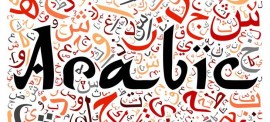Importance of Arabic Language

How many of you know that Arabic is ranked at 5th most spoken language in the world with 293 million native speakers and 422 million speakers in total, it’s an official language in 26 countries that doesn’t mean it’s the majority language in all of those countries but it’s one of the official languages. It is also one of the six official languages of the United Nations and as the language of the Quran the holy book of Islam it is also the liturgical language of 1.7 billion Muslims around the world.
Classical Arabic Language
Most of those people don’t speak Arabic but many have some knowledge of Arabic for reading and for reciting prayers and religious study speaking about Arabic. Arabic can be confusing because there are many different varieties of the language one of the main varieties is the classical Arabic of the Quran. This is considered by many to be the most perfect form of Arabic and some say it’s the only true Arabic because it was the language in which God revealed the Quran to Muhammad.
Standard Arabic Language
Standard Arabic – which is the form of Arabic used as an official language today. It’s the modern form of literary Arabic which was based on the classical Arabic of the Quran but with some adaptations and a greatly expanded vocabulary to make it more suitable for modern times. It’s not exactly the same as classical Arabic but both of them are referred to by Arabs.
Standard Arabic is the language of books, media, education and formal situations but not as the language of everyday speech for everyday speech Arabic speakers use their local dialects which can differ quite significantly from country to country and even from one place to another.
Arabic of the Quran was always seen as the ideal Arabic to imitate and this probably had a conservative effect on the dialects limiting them from changing too much after Napoleon entered Egypt in 1798.
Native Arabic Speakers
Arabic speakers used two distinctly different forms of the language in parallel for different purposes modern Standard Arabic is not learned by anyone as a native language but it’s used in reading and writing in media on children’s TV shows and in formal speeches while the colloquial dialects are used almost universally for daily conversation as I mentioned before there’s quite a lot of variation among-st Arabic dialects.
Native Arabic speakers are from the Middle Eastern countries and they speak arabic dialects really have no trouble understanding each other and that the main trouble comes in understanding the Maghrebi dialect especially Moroccan but these days with the spread of cable TV and the internet people are being exposed to a wider range of dialects on a more regular basis which helps people understand different dialects more.
Read more articles related our arabic voice services
https://www.thearabicvoiceover.com/blog-3/







